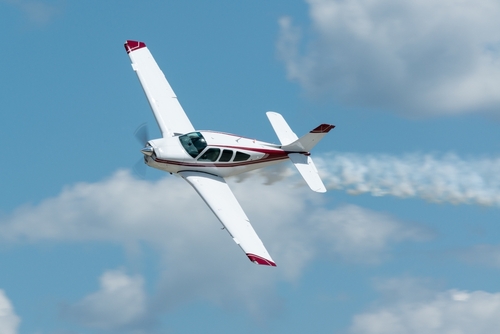Drug Cartels Exploit FAA Loopholes

A Senate report issued Monday has unveiled significant loopholes in the Federal Aviation Administration’s (FAA) aircraft registration process, which drug cartels have exploited to further their operations across the globe. Co-chair of the Senate Caucus on International Narcotics Control Sen. Chuck Grassley (R-IA) issued a statement on Monday to bring public attention to the exploits cartels are using to make the FAA their unwitting partner in the drug trade.
The report criticizes the FAA for its loose protocols. The current registration system makes it simple for criminals to create shell companies and foreign-owned trusts to register domestic aircraft in the U.S. The planes they register are used to smuggle narcotics while bypassing international scrutiny that U.S.-registered aircraft typically do not receive.
“While Americans rely on the Federal Aviation Administration to provide smooth transport from point A to point B, criminals are taking advantage of the system to transport illicit goods and make a profit,” Grassley stated.
Senate report warns drug cartels abusing FAA loopholes to expand operations | Just The News https://t.co/me9aMgNqhA
— John Solomon (@jsolomonReports) April 8, 2024
The Government Accountability Office (GAO) has previously taken notice of the security gaps in the FAA’s procedures. In fact, the GAO has already provided 15 specific recommendations to the FAA, although only three of them have been acted upon so far.
The FAA’s current system’s deficiencies provide a “blind spot” that criminals take advantage of to quite literally fly under the radar of law enforcement and homeland security. “The FAA’s stubborn habit of rubber stamping registrants leaves the door open for drug traffickers and would-be terrorists to wreak havoc in the U.S. and abroad,” Grassley added.
The Senate report points out a critical yet overlooked aspect of international narcotics trafficking. It poses challenging questions about the efficacy of U.S. regulatory bodies in curbing such activities. The FAA failure to properly address the GAO’s recommendations is a sad example of bureaucratic lag that so often has a negative impact on national security.
Moreover, the exploitation of FAA loopholes by drug cartels underscores the sophisticated methods employed by these criminal organizations to circumvent international law enforcement efforts. The situation also points to the unexpected results that come from regulatory laziness and bureaucratic inefficiency, as “tough” regulations can wind up directly benefiting the bad actors they are designed to stop.
